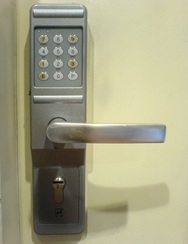
Assignment: 1) recover email address passwords for everyone in the house. 2) find some way to keep them save from themselves in the future ..
Dec 2014 they called me in because they all had forgotten their email passwords, but still had access to online email still from some of their devices which had been set up in the past (with computer stored passwords).
1) client1's [email protected] account used client2's [email protected] as the recovery email. no cell phone backup set up (they don't use cell phones). Gmail no longer uses stored computer security questions/answers, only the specified recovery email.
2) client2's [email protected] account used an old yahoo account [email protected] as the recovery email - also with unknown password. The recovery email for [email protected] used another unknown yahoo account c*@y* and so was no help at all either.
3) we were able to reset client1's password to newpw1 by sending email to client2's computer. Unfortunately, the stored password for client2 was lost when the link to reset client1's password was accessed. Client1 is now happy. Client2 is now unhappy and without email access.
4) so .. set her up to use a new [email protected] with password newpw2 for now and will keep working to see if we ever find a way to recover any of her old email or contact information. As far as I see, there are no other options. FYI she had written down some past used passwords, but forgot to write down or remember her last password used.
..
sigh
..
In the past, they came to me when their ISP had deleted their email accounts after making account changes (trying to get a new deal). That is one reason they switched to the free email options. The bottom line, they lost access to all their past email messages and contact lists then as well.
Best practices:
- Remember your password. Whenever you change it, write it down in a safe place. No, not posted in plain sight next to your computer. I like to use the free passwordbox (https://www.passwordbox.com) utility to securely store all those important passwords and such online. BUT even that required a password that MUST be remembered (and not easily guessable). Should you ever lose that password, you will be hooped. So, perhaps it should be written down as well and stored in a secure convenient place .. in back of the drawer under the computer desk ?? or in your safety deposit box.
- Review your recovery email addresses. If you set it to point to an email that no longer is remembered or used you could be in for a very silent (email) night next Christmas. Your recovery address should be an email address that you (or a trusted friend) use regularly (and remember the password to). see Google Help: Recovery Email Addresses
- How about a backup, buddy? For one-time occasional snapshot of all your stuff online .. see Google Takeout (https://www.google.com/settings/takeout) .. perhaps quarterly or annually.
- I suppose you could also breakdown and use an email reader (from time to time) to access your online email. For convenience, I like to just directly sign on to gmail via chrome from whatever device I am nearby or even via an incognito window on a friends device (ie Ctrl+Shift+N from a chrome or chromium browser) .. However, there is something to be said for having your email messages and contacts safely stored on your own desktop as well. Microsoft keeps changing our email world on us with an ever-changing array of email products: Outlook, Outlook Express, Windows Live Mail, Windows Mail, Mail, Live.com email programs that let you read and save that data to your computer and view it even if no internet (say waaah?) is available (of if you forget your email password). That way, at least you could access your extensive email contact list and tell them you have decided, for security reasons, to switch to a new email address. There are also a number of popular open source alternatives - Thunderbird comes to mind, but Pegasus or Evolution both do the job. Feature comparisons: (http://email-clients.findthebest-sw.com/compare/1-2-8/Pegasus-Mail-vs-Thunderbird-vs-Evolution). Remember, however, these programs will only find and know the emails from the last known email password and access - that is to say, if you changed the password and can't remember it anymore, the program will only show you the emails it was last able to access - but that is more than poor client2 has at the moment ..
 RSS Feed
RSS Feed
